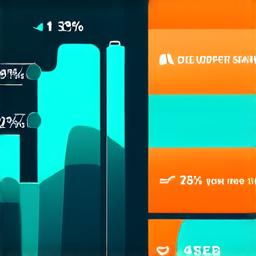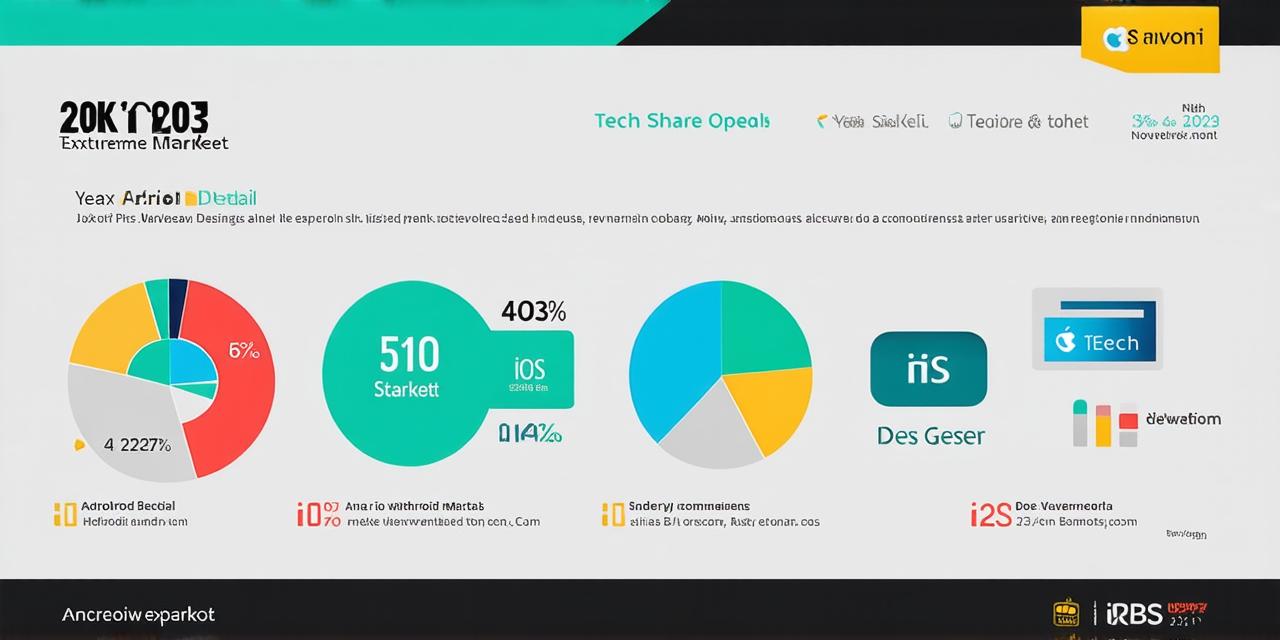Corrected HTML code:
Android App Developers: The Market Leader
As of right now, Android app developers are the clear leaders in the mobile app market. According to a report by Statista, as of 2021, there were 4.67 billion active smartphones in use worldwide, with 89% of these running on Android.
Android app development also offers a number of advantages over iOS app development. For example, Android devices are generally more affordable than their iOS counterparts, meaning that there is a wider range of devices that can run Android apps. Additionally, Android devices allow for greater customization and flexibility, making them highly popular among users.
In terms of market share, Android also dominates the app store landscape. According to a report by Sensor Tower, as of 2021, Google Play Store had over 3.9 million apps available, while the Apple App Store had just under 2 million. This means that there are more apps available on Android than iOS, giving users a wider range of options to choose from.


iOS App Developers: The Rising Star
While Android app developers currently lead the market, iOS app developers are quickly gaining ground. According to a report by eMarketer, as of 2021, Apple’s iOS platform accounted for 54% of all mobile app downloads in the United States, with Android accounting for 43%.
There are several factors that have contributed to the rise of iOS app development. Firstly, the iPhone is one of the most popular smartphones on the market, with a highly loyal user base. This means that there is a huge potential audience for iOS app developers to target. Additionally, Apple’s strict app approval process has helped to maintain high standards and ensure that the apps available on the platform are of high quality.
Comparing the Two Platforms
Now that we’ve looked at the current state of the market, let’s compare Android and iOS app development more closely.
- Market Share: As we’ve seen, Android currently dominates the mobile app market, with over 89% of smartphones running on the platform. However, iOS is rapidly gaining ground, with Apple’s platform accounting for 54% of all mobile app downloads in the United States.
- App Store Landscape: The Google Play Store has over 3.9 million apps available, while the Apple App Store has just under 2 million. This means that there are more apps available on Android than iOS, giving users a wider range of options to choose from.
- Fragmentation: One of the biggest challenges faced by Android app developers is fragmentation, with different devices running different versions of the operating system and having varying levels of hardware and software capabilities. This can make it difficult for developers to create apps that work seamlessly across all devices.
- Cost: iOS devices are generally more expensive than Android devices, which can limit their appeal to budget-conscious users. However, the high cost of iOS devices may also contribute to their perceived value and loyalty among users.
- App Approval Process: Apple’s strict app approval process can make it difficult for developers to get their apps approved and into the App Store, but it also helps to maintain high standards and ensure that the apps available on the platform are of high quality.

The Future of Android and iOS App Development
Now that we’ve compared the two platforms, let’s look at what the future might hold for Android and iOS app development.
- Market Share: While Android currently dominates the market, it’s likely that iOS will continue to gain ground in the coming years. As more users upgrade their devices to Apple’s latest offerings, the company’s platform is likely to see even more adoption.
- App Store Landscape: We can expect both app stores to continue to grow, with more apps being added to each platform. However, it’s likely that the Google Play Store will remain the dominant force in the market due to its larger user base.
- Fragmentation: Android fragmentation is likely to remain a challenge for developers, as new devices and operating system updates are released. However, efforts by Google to streamline the app development process and improve device compatibility may help to address this issue.
- Cost: The cost of iOS devices is likely to continue to be a factor in the market, but it’s also possible that we’ll see more affordable options become available as Apple seeks to expand its user base.
- App Approval Process: Apple’s strict app approval process is likely to remain in place, with the company continuing to prioritize quality and user experience. However, there may be some changes to the process as the company seeks to balance its desire for high standards with the need to attract more developers to the platform.
Summary
In conclusion, both Android and iOS app development offer unique opportunities for developers to reach huge audiences and create innovative and engaging apps. While Android currently dominates the market, there’s no doubt that iOS is rapidly gaining ground, and both platforms are likely to see continued growth in the coming years. By understanding the strengths and challenges of each platform, developers can make informed decisions about where to focus their efforts and ensure that they are creating apps that will resonate with users on both Android and iOS devices.
